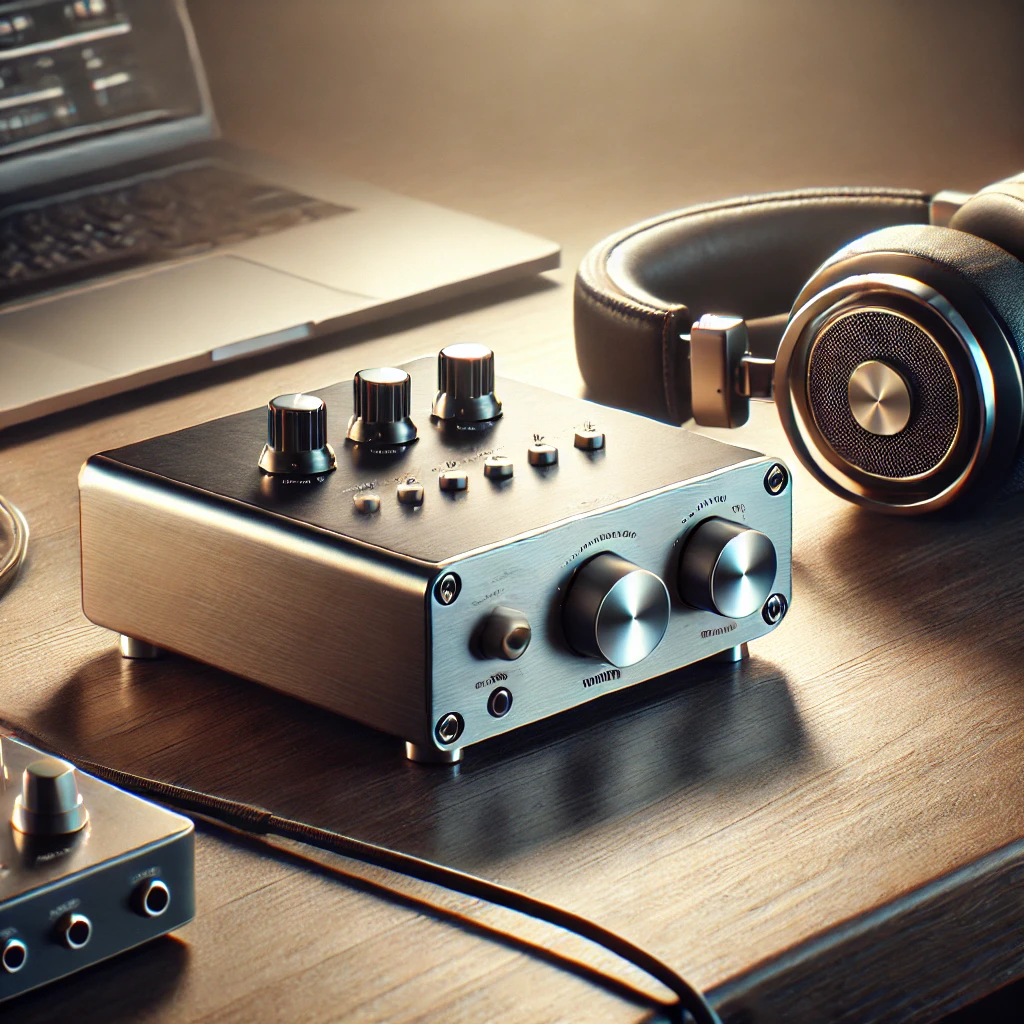Beginning
Many audiophiles and casual listeners alike are often left thinking, though, when it comes to getting better sound from their headphones: Do I need a headphone amp? Yes is the response, particularly if you want to really open the possibilities of high-quality headphones. A necessary tool that can greatly enhance your listening experience by supplying sufficient power and increasing the sound output from your audio sources is a headphone amplifier (amp).

This all-inclusive tutorial will explore what a headphone amp is, why you could want one, the various kinds of headphone amps on the market, and how to select the ideal one for you.
What is a Headphone Amp?
A headphone amp is a device that amplifies the audio signal going to your headphones. Designed to increase the audio signal delivered to your headphones, a headphone amplifier is a little gadget. This guarantees that your headphones get a higher voltage signal, which is absolutely essential for driving high-impedance headphones (those needing more power) and for obtaining better sound quality from low-power devices like smartphones or laptops.
Some high-end headphones could sound unimpressive without an amp since they lack the volume, clarity, or dynamic range they can generate. A headphone amp guarantees rich, full, and accurate sound by means of extra power to the headphones.
Reasons for Headphone Amp Use
Most audio sources, such as smartphones, laptops, or portable music players, are limited in their power output. While these devices may drive low-impedance headphones just well, they generally struggle with high-impedance headphones that require more power for maximum performance. A headphone amp steps in to alleviate this problem, delivering additional power to drive your headphones to their maximum potential.
Here are some specific reasons why a headphone amp can make a difference:
- Improved Sound Quality: A headphone amp boosts the sound quality, delivering a deeper and more detailed music experience.
- Increased Volume: With additional power, you can reach higher volumes without distortion or compromise in sound quality.
- Better Dynamics: Headphone amps enable you experience a wider spectrum of sound frequencies, from the deepest lows to the highest highs.
- Compatibility with High-Impediance Headphones: High-impedance headphones (over 100 ohms) often require more power than normal audio equipment can deliver. A headphone amp resolves this issue.
Types of Headphone Amps
Not all headphone amps are made equal. Depending on your demands and the headphones you own, you may pick for one of numerous types of headphone amps.
1. Portable Headphone Amps
Portable amps are compact, battery-powered devices meant for on-the-go application. They are generally used with smartphones, tablets, or portable music players to provide improved sound quality while traveling or during outdoor activities. For audiophiles wishing to improve their listening experience while on the go, these amps are ideal.
2. Desktop Headphone Amplifiers
Larger, more powerful devices usually found in stationary environments like home studios or listening rooms, desktop amps are. These amps are designed to be utilized with desktop computers, music production setups, or high-end headphone systems. They offer more power, superior sound quality, and additional capabilities like tone control, balanced audio output, and more.
3. Integrated Amplifiers
An integrated amplifier is a form of headphone amp that incorporates both a headphone amplifier and a speaker amplifier in one device. These are often used in home audio systems and give the simplicity of driving both speakers and headphones without having separate components.
4. Tube vs. Solid-State Amps
Another distinction in headphone amps is whether they use tube technology (vacuum tubes) or solid-state (transistor-based) technology.
- Tube Amps: Tube amps are noted for their warm, natural sound and are chosen by audiophiles who enjoy a more vintage, analog sound signature. They tend to distort audio in a nice, musical way, making them perfect for genres like jazz or rock.
- Solid-State Amps: These amps use contemporary transistor technology and are noted for their clean, precise sound reproduction. Usually smaller and more efficient than tube amps.
Selecting the Appropriate Headphone Amp
Selecting the appropriate headphone amp depends on a number of variables, including your headphone’s impedance, the kind of music you listen to, your budget, and the audio sources you utilize. Here is how to choose wisely:
1. Think About Your Headphones’ Impedance
Usually between 32 ohms to over 600 ohms, headphones have various impedance levels. To provide the finest sound quality, high-impedance headphones need more power. A headphone amp capable of enough power to drive high-impedance headphones will be required.
2. Evaluate the Type of Music You Listen To
Different amps may enhance some characteristics of music differently. A tube amp could be more appropriate for you if you like categories that gain from warmth (like jazz or blues). For genres like rock or techno, a solid-state amp might deliver the precision and clarity you’re looking for.
3. Know Your Audio Sources
Consider the output possibilities of the gadget you are using with your amp. For example, whereas desktop amps are better suited for usage with a computer or high-end music player, portable amps are meant for smartphones or portable devices with headphone connections.
4. Search for Additional Features
Some headphone amps include extra capabilities like volume controls, tone changes, or several inputs for different audio devices. Look for a model with these characteristics if you intend to use your amp with several audio sources or desire more sound control over your sound.
5. Think About Your Budget
From reasonably priced to luxury audiophile versions, headphone amps can vary in cost. Establish a budget and search for amplifiers within that range that provide the most value. Keep in mind that more costly does not necessarily equal better; it is vital to fit the amp to your needs for headphones and use.
READ ABOUT:The Paper Clip Necklace: A Trendy Look Redefining Minimalist Jewelry
Commonly Asked Questions
1. Having high-quality headphones, do I require a headphone amplifier?
Certainly, a headphone amp can help greatly with high-quality headphones, particularly those with more impedance. A headphone amp gives your headphones the required power to get the optimum sound quality and loudness.
2. How does a solid-state amp differ from a tube amp?
While solid-state amps provide a more precise, crisper reproduction of audio, tube amps create a richer, more analog sound with some distortion. While solid-state amps are chosen for their clarity and efficiency, tube amps are liked for their own flavor.
3. May I connect a headphone amplifier to my phone?
Certainly, portable headphone amps are meant to operate with cellphones and other portable devices. Especially for high-impedance headphones needing more power than smartphones can offer, these amps can enhance sound quality.
4. What impedance is best for headphones?
Your gadget determines the perfect impedance for headphones. While high-impedance headphones (above 100 ohms) need a headphone amp to achieve their maximum potential, low-impedance headphones (32 ohms) are appropriate for most devices.
5. Are pricey headphone amps justified?
While costly amps can offer better sound and additional capabilities, the cost is not always justified for casual listeners. Investing in a quality headphone amp could be worthwhile if you are an audiophile or own high-end headphones for improved audio performance.
Final Thoughts
Especially if you use high-impedance headphones or want better loudness, clarity, and dynamic range from your music, a headphone amp is a game-changer for anyone trying to enhance their audio experience. Whether you are a casual listener or an audiophile, knowing the value of an amp and selecting the appropriate one for your purposes will greatly affect the sound quality you encounter.

